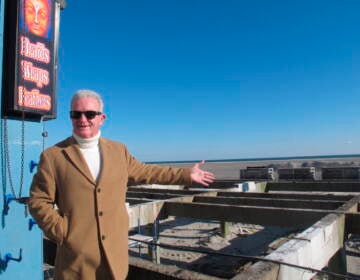Curbing overdose deaths in New Jersey: Lawmakers debate new measure
Twenty-six year old Sal Marchese died in a parked car in Camden. The police said that he wasn’t alone, but no one ever called to say he was in trouble. They just walked away.
The Audubon native died from a drug overdose. According to police, the person with him likely feared being arrested and ran.
But before writing him off as “just an addict,” consider this fact: Drug overdose was the leading cause of accidental death in New Jersey in 2009, according to the New Jersey Department of Health and Senior Services.
Today, the New Jersey legislature will begin hearings on the Good Samaritan Overdose Response Act, which seeks to offer “limited protection from arrest and prosecution for drug possession charges for a witness who calls 911 in an overdose emergency.” The act was inspired by a sharp increase in overdose deaths like Sal Marchese’s.
Epidemic in New Jersey
Sal’s story is indicative of an epidemic in New Jersey. More than 6,000 residents died from drug overdoses since 2004, with over 700 of those in 2009 alone. The deaths are spread across every county in the state. Only a quarter of the victims were minorities.
Camden police recently began issuing warnings to the owners of vehicles seen at known drug spots. Ninety percent of the notices went to suburban, rather than urban, residents. Drug addiction is no longer an inner-city problem, relegated to the back streets of Camden. It’s everywhere.
The widespread drug problem has left many New Jersey families reeling. Kim Farinick lost her daughter Dana to a drug overdose. In her testimonial for the Drug Policy Alliance, she writes, “At Dana’s wake, a half-dozen people came up to me and told me about someone in their family or someone they knew who died of an overdose. I know I’m not alone and there are many parents like myself who have sons and daughters who have battled with or are battling addiction – children whose lives are at risk due to potential overdose.”
Sal’s mother, Patty DiRenzo, and his sister, Blake Marchese agree that addiction is a battle.
“It was so hard to get help,” said Marchese. Sal did not have insurance and private rehab programs are expensive. He spent six years cycling through addiction, sobriety and relapse before he died.
Curbing drug overdose deaths
To help curb the overwhelming number of drug overdose deaths, the Drug Policy Alliance launched the Overdose Prevention Campaign, which aims to promote awareness about this epidemic and provide education on how to reduce overdose deaths. One of its main priorities is to pass the Good Samaritan Overdose Response Act in New Jersey.
State Senator Joseph Vitale sponsored the act. He believes that “extending Good Samaritan protection to individuals that witness an overdose will literally save lives. In an emergency, time is of the essence and can be the difference between whether an individual lives, dies or ends up severely and permanently disabled.” Ideally, the bill will encourage those who witness a drug overdose to call for medical assistance immediately, so, in cases like Sal’s, the person can receive help before it is too late.
Megan Glaser, Policy Coordinator for the Drug Policy Alliance says overdose victims usually have a window of one to three hours in which their life can be saved. Unfortunately, as in the case of Sal Marchese, “overdose victims usually die in the presence of others,” said Glaser. Most witnesses are fellow drug users who are afraid of arrest and prosecution for having drugs. They may also have outstanding warrants or be on probation or parole.
The act reiterates the Drug Policy Alliance’s belief that calling 911 should never be a crime. In the event that a person witnesses a drug overdose, the limited protection offered by the bill will allow for faster and more accurate treatment because the fear of arrest or prosecution would be removed.
Opponents of the act argue that it condones drug use and that it would provide protection for drug dealers.
Neither is true, argues DiRenzo. “We’re not trying to save some drug dealer, just the friend of a friend” who is scared of getting in trouble. She only wants to “save one more family from going through this.”
Another outspoken proponent of the act is recovering heroin addict, David Dolan. He witnessed friends die from drug overdoses and wonders how he survived four overdoses. “I believe it is necessary to offer protection from arrest for those who call 911 in the event of an overdose… I’m in no way condoning drug use, but I think that everyone’s life has value. You can recover from drug addiction, but the opportunity for recovery is lost forever in a fatal overdose.”
DiRenzo and Marchese believe that Sal’s life “could have been saved if someone had just picked up the phone.” Like, Dolan, he would have had another chance to recover. Instead, Marchese laments, “Sal was left in a car in Camden that night, alone to die, because someone was too afraid to make the call to save his life. As a result, my mom lost her son, me a brother, and my nephew his father. It breaks my heart to know…that if someone had sought help for Sal when he was overdosing, he might be here with us today.”
WHYY is your source for fact-based, in-depth journalism and information. As a nonprofit organization, we rely on financial support from readers like you. Please give today.




